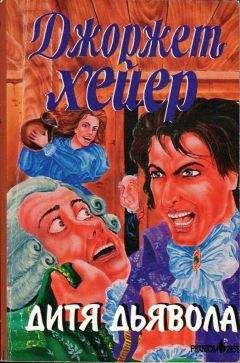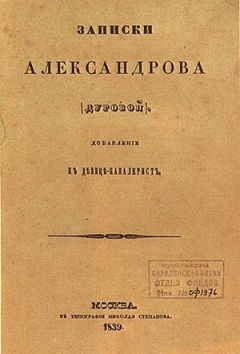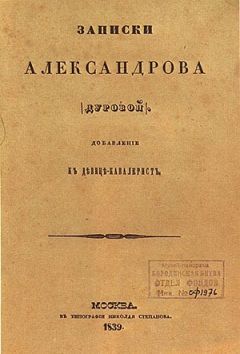Peter Carey - Oscar and Lucinda
We believed God sent the plague of frogs.
We believed God sent the plague of lice.
We believed God sent the plague of murrain. «
Of boils.
Of hail.
Of locusts.
We believed God took the firstborn of the Egyptians.
We believed the story of Jonah and the whale.
We believed Lot's wife was turned into a pillar of salt.
We believed God parted the waters of the Red Sea.
We believed Jesus walked on the Sea of Galilee, that he turned water into wine, that he rose from the dead and ascended into Heaven.
We had none of the doubts of the 1860s. At Christmas we made a star of Bethlehem from cardboard and silver paper.
20
Palm Sunday in New South Wales
They did not have proper palms at home in Exeter. But in Parramatta there were two kinds of palms with which to decorate the church and Elizabeth Mullens, ten years old, just arrived in the colony, was excited.
The children from the Sunday School were to decorate the church. This was not the custom at home. It was the custom here. They waited in the street while the men unstrapped the palm leaves from their cart and threw them on to the street.
There was Letty Savage, the daughter of Dr Savage, and her two
61
Oscar and Luanda
younger brothers. Letty Savage had held Elizabeth's hand and already told her two secrets. There was the Mayor's son, a small pale boy and very quiet. There were two pretty daughters of the clergyman. They were all from good families, and all well behaved. They stood still by the cart, but not too close, and did not talk and giggle.
Elizabeth would never know why she did what she did. It was excitement. It was getting ready for Easter in such warm sunshine. It was wishing Miss Ahearn, the Sunday School teacher, to know that Elizabeth knew all about Palm Sunday.
When the cart drew away she picked up a palm leaf and waved it. She was not boisterous, rather tentative in fact. She waved reverently, as if she were in Jerusalem on that day. There was a man-she could see him, would always see him-with a broad black beard and small jug ears, riding a little fat-bellied horse down Church Street.
All she meant to do was lay the palm beneath the horse's feet.
"Hosanna," she cried-afterwards her voice would sound shrill and silly in her memory-"Hosanna in the highest."
All her life she saw what happened: the horse rearing, the man's mouth open, the dreadful trajectory. The noise his head made was as definite as a walnut cracking. The doll was purchased from the jam jar, or one of the jam jars, for in the earth-floored hut in New South Wales in which Lucinda Leplastrier was born there were a great number of jam jars, some of them visible, some of them not. The less important ones-thick, dumpy, heavy with ha'pennies and farthings, squat toads, unkissed by silversat on the twisted mantel beside the heirloom clock. There were two of these, the bluish one for the plate at church, the scratched green one for stamps and jam and other luxuries; these jars were never full. But there were other taller jars tucked away behind the cast-iron stove, and several others inside the wattle and daub walls, their exact location hidden by the dried mud and one would think, looking at the place, that this particular piece of mud was a part of the daub, or, even if you arrived when it was fresh, that it was nothing but a draught hole her papa had filled as he had filled so many others, with old newspaper and mud.
There were jam jars hidden behind the handsome books her mother dusted-always in the middle of some other task (making white sauce, cutting up the soap into square cakes on the central table), a flick of a rag, whisk, whoosh-a lizard's tongue licking the white clay dust off Carlyle, Dostoevsky, Seneca, Dickens, Tolstoy, John Stuart Mill, and the novels of her old friend Marian Evans behind whose affectionately autographed books there lay an ash-smelling jar filled with pennies and even threepences. This was the birthday jar.
It was from this birthday jar that the doll had come, and sometimes it seemed it was against her mother's wishes-for she was often sharp with Lucinda when she held the doll against her breastand yet sometimes it seemed the doll must have been her mother's idea, for her father would, when he was tired or depressed about their lack of headway with the farm, or the ignorance of their neighbours, tease her mother about her love of luxury. This meant the doll. There had been no other luxury.
The doll was her ninth birthday present. It had come in a ship across the world, just as her mama and papa had. She was very pretty with bright blue eyes and corn-yellow hair. Her cheeks were as smooth as china, and cool against your neck on a hot day. The doll had been purchased by Marian Evans who had gone in a coach to a great exhibition, especially to buy it. And that time Lucinda-much impressed by what she called the "expedition"-did not know what an exhibition really was, but it later occurred to her that the doll must have come from the building she was to so admire in her adult life-the Crystal Palace.
On the day she took Dolly to play over on the back creek, she wrapped her in a white crocheted shawl that she took, without permission, from the Baby Drawer. She wrapped the doll in the shawl because she knew-although her brothers had all died before they were old enough for her to remember them clearly-how it was you should treat a babe in arms.
"There is a nasty wind blowing," she told the doll. Her mother did not approve of her speaking with dolls. Had she heard her, she would have said it was 'limiting." Her mother, however, was not therehad been called to help "the poor silly girl" (Mrs O'Hagen) have a baby, and Lucindawho clearly remembered the last occasion Mrs O'Hagen had given birth-knew there would be no more lessons today. To reach the back creek one had first to cross the other creek-really it was a river-behind the house. There were stepping stones across this creek, but they were wobbly and awkward and shifted their position after every rain. She wore her Wellingtons. She also carried the glue-pot she had "borrowed" from her father's workbench, thus establishing beyond doubt that the incident that took place when she finally crossed the twenty-acre paddock and reached the place where tea-coloured water ran across a bed of yellow sand, that the operation she there performed could hardly be seen as impulsive. When her mild and careless father, in a most uncharacteristic temper, called her "secretive" and "wilful" he was only in error to the extent that he did not really believe what he was saying.
It was a bright clear winter day-quite warm when you were sheltered from the wind-with small white clouds like old men's faces scudding across the sky.
Lucinda clambered up the crumbling riverbank and set off across the pasture to the back creek. She was short for her age-counter to her mother's early hopes and expectations. ("She has big feet!" Elizabeth had written triumphantly to Marian Evans; but nothing came of it.) Her steps were small and measured, fast, but not hurried. In truth she was nervous and excited. She had never been to the back creek by herself before and although no one had actually forbidden her, she knew she would be refused permission if she sought it.
The back creek had once been the main creek, until, in the big rains of 1821, it quite suddenly changed its course. So the Mitchell's Creek beside which the Leplastriers had built their hut was a new Mitchell's Creek and the trees that grew there were no more than thirty years old, whilst the back creek contained a richer, tangled growth of old gnarled trees where you could see the scars the blacks had made cutting barks for canoes and other implements. It was dark under the trees by the back creek and the water was stained with fallen leaves and moved slowly. Light came in motes from the ceiling of the canopy and there were small birds which lived on the ground and made alarming scuttling noise in the undergrowth right next to you. It was Blackfellow territory. Lucinda placed her doll on a springy khaki-green tussock, the glue-pot on some dust-dull river gravel. She then collected twigs and bark. She elected to build her little fire competently. She arranged two rocks on which the glue-pot would sit. She had wax matches in her pinny pocket. She lit the fire and watched it, squatting with her bent knees cloaked by the calico pinafore. She had a thoughtful, intelligent face-a high forehead, perfectly arched and clearly denned eyebrows, a mobile, slightly thin but prettily bowed upper lip, which betrayed-by its constant contraction and expansion-her enthusiasms, and a full lower lip, which would one day suggest sensuality but now, set against her large, heavy lidded green eyes, made the false promise of a wry, precocious humour. Her hair was reddish brown, more brown than red except here, by the creek, where a mote of light caught her and showed the red lights in a slightly frizzy halo.
She did not like her hair. It dragged and snagged on her mother's tortoiseshell hairbrush. Both her mother and father had straight black hair through which a comb could pass as if through water. She loved the way the strands of their hair lay so neatly, side by side, like pen lines. She had assumed-until her father had gently disabused herthat her own hair would change when she grew older, that the brush would one day cease to pull and the hairpins might at last have her as neat as she was meant to be.
Indeed the sole purpose of this illicit journey across the back paddock was all to do with her admiration for straight black hair. It was her plan to give a present to her doll, and while the glue-pot began to give off its comforting and distinctive aroma, one inextricably linked (like the smells of bran, pollard, tweed, apple peelings and ink) with her father, she took the doll in her lap and began to pull the hair from its head.
The hair was like her own-curly and frizzy to touch-but blonde, of course, where hers was frizzy brown. She pulled the hairs out in little tufts, grimacing and screwing up her eyes.
"Oh, do be still," she said. "If you squirm and slide you'll only make it worse." She placed the hair in an envelope on the back of which was written the name of John Bell, a Fellow of the Royal Society, and the man-by the by-responsible for Abel Leplastrier having such a large entry in the Encyclopaedia Britannica.
Soon the envelope was fat and spongy and the doll's head was not bald and shiny as she had imagined but sticky and brown with a substance a little like a hessian bag… 65
Oscar and Lucinda
"There," she said. "You see. it wasn't so bad."
But she felt a little frightened, not only of what she had done, but of where she was doing it. She looked around her, peering into the deep shady tangle of bush.
"I like the blacks," she told the doll loudly, "I like them better than the Mayor of Parramatta." But she had lost some of her earlier cornposure and when she reached for her other envelope-the one in which she had the hair her father had trimmed from the Percheron's black tail-her hands grabbed and her fingers pecked and, quite suddenly, nothing would go right. The glue ran down the doll's face, across her wide blue eyes. She used the shawl to wipe it clean, but the glue would not come off and then she saw she had made a nasty brown stain. She tried to wash this in the creek.
As for the hair-she had seen, in her mind's eye, how it would fall. She had seen it clearly, often, particularly after she had said her prayers and was drifting into sleep. But now the hair did not behave as she had imagined. It lay flat and sticky, matted together. She laid the doll down flat on the gravel bed and thought how she should now proceed. She rubbed her neck and forehead and left brown marks there. Then she coated the doll with more glue and this time she pushed the hair on in handfuls. What fell loose she pushed on again. It did not look how she had imagined, and although a part of her was alarmed, another part was thrilled by the great change she had wrought in Dolly who was-as if by magic-a different person, a native of a land where maps were not yet drawn. Her father would know which one, and if did not, then, why, he would make believe.
She was not prepared for the upset she created. There was no bread and butter when she brought her doll back into the hut in the late afternoon. Indeed, finally, there would be no supper. Dreadful things began to happen around her. Her mother slapped her leg. She had done this once before. Her mother had passions; she recovered from them quickly. But her father had no passions, did not shiver and shake. He was steady and even and never fussed, even when he lost the mail from Home somewhere in Parramatta. Her father saw the doll. She held it up to him. He drew himself up, he opened his mouth, he shuddered, he threw their best serving dish across the room where it nearly broke a burning lantern. Lucinda held her doll up in the air. Her mother threw a frying pan through the open doorway. She threw it so hard it clattered down the boulders on the creek. These missiles were not directed at her, but the air was filled with a violence whose roots she
66
Lucinda
would only glimpse years later when she lost her fortune to my greatgrandmother and was made poor overnight. Then she wondered how much the doll had cost.
"Why?" they asked her. "Why?"
And all she could say, through her tears, was that she wanted her Dolly to be neat. This was not an event one would easily forget, and Lucinda did not. And yet, paradoxically, when she came, as a young adult, to think about her own neatness, a habit she was always at war with herself about (suggesting as it did a great construction, a lack of generosity) she somehow failed to realize that it must have been with her from a very young age. She did not remember how great a virtue neatness had been held to be in her early childhood. This early childhood was always "quite normal" in her recollection. She imagined that her neatness was something she had
"caught" from her mother after her father's death, for then Elizabeth, left alone to farm, became like a caricature of her former self and would demand neatness in the most ridiculous degree. It was-as we have seen-not so; although her confusion of memory may be explained by the curious coincidence that the death of her papa also involved hair, and when she thought about the death she would always see a sticky black mess of hair like the one she had made herself at the back creek so many years before.
On the Saturday before Palm Sunday in 1852, her papa was thrown off his horse in Church Street, Parramatta. He cracked his crown and was dead almost immediately. Mr Chas Ahearn brought the body out to Mitchell's Creek in a wagon borrowed from Savage the grocer. He had wrapped a gaudy checked blanket around her papa, tucked it in tight around the sides and it was when this was undone that Lucinda, clinging to her silent mother as someone might clutch hold of a tossing log in a flooding river, saw the hair which would now grow for ever-matted, sticky, suffocatingin the gloomy undergrowth of her nightmares. It was only after this, so Lucinda remembered, that they suffered the disease of neatness. Elizabeth Leplastrier believed, as many still believe today, that you can tell everything you need to know about a farmer's skills by the condition of his sheds and fences, and whilst this may be true enough in a way, it became, for Elizabeth, such a tenet of faith that fences and sheds were attended to in preference to sheep and wheat and, on one occasion that was soon notorious in the district, amongst



